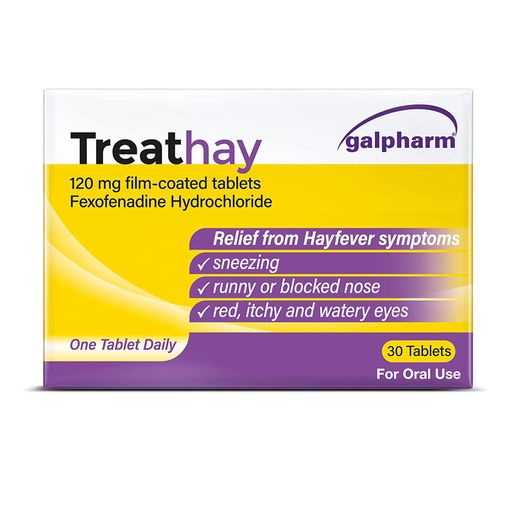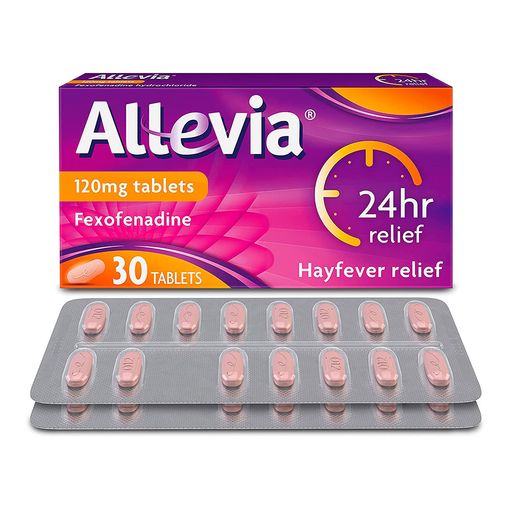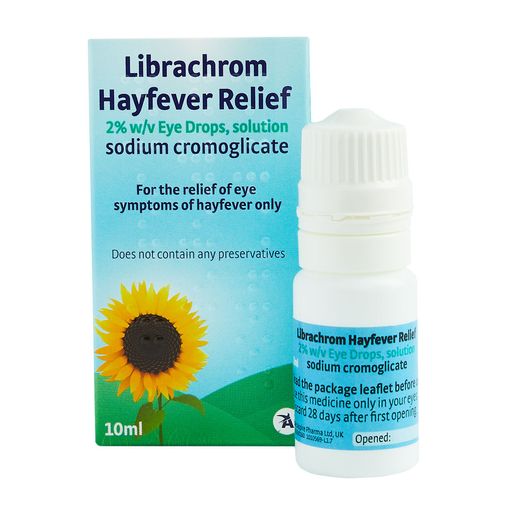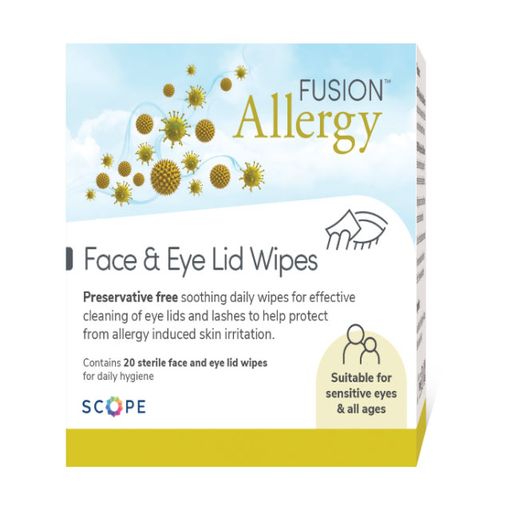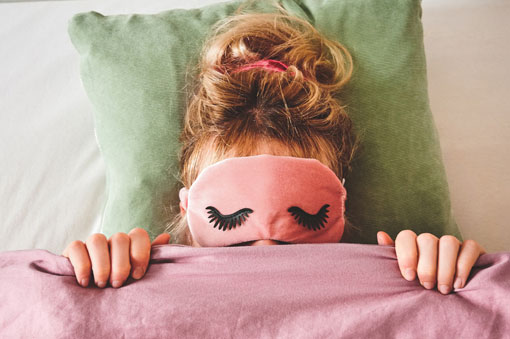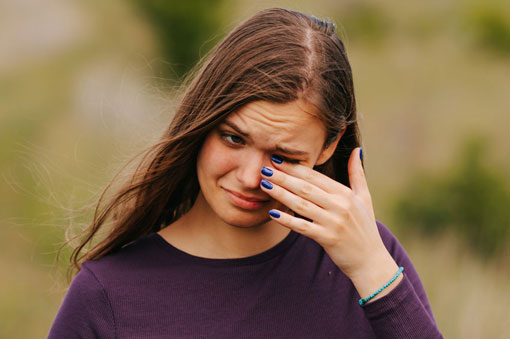In January, hazel and alder pollens are released early in the year and cause winter allergies that may be confusing for first time sufferers.
Hazel trees produce hazelnuts and can look more like shrubs than trees as they grow low to the ground. Their catkins look like lambs tails peppering the Autumn woodland and hedgerows. You can see a Year in the Life of a hazel on the Woodland Trust website.
Alder trees prefer wet, marshy ground and can be found near ponds, rivers and streams. They grow taller than hazel and are conical in shape. You can see a Year in the Life of an alder on the Woodland Trust website.
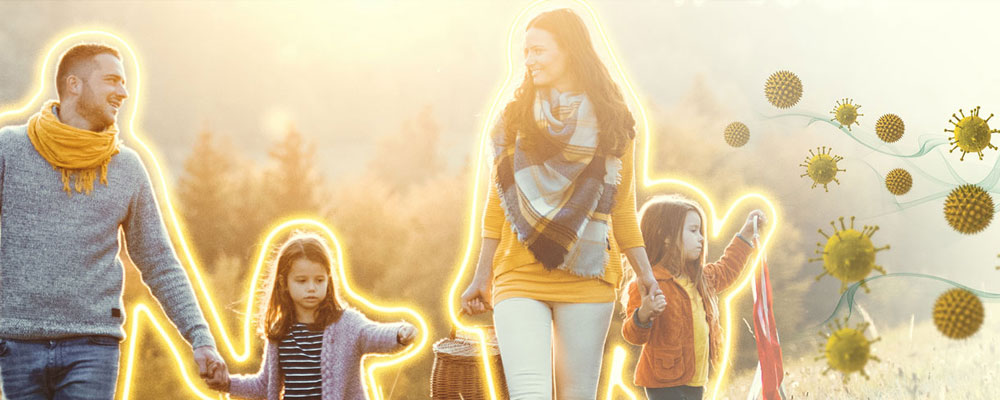
Tree pollen allergy season
By the month of March, extremely potent birch pollen is produced from the popular silver birch tree catkins and this really causes miserable problems for tree allergy sufferers from March to April.
Because of their silvery bark, gentle leaves that sway in the breeze and manageable growth, silver birch trees are a popular choice to be planted among houses and in local parks. In fact, you do not even need to live very close to birches as their light pollen carries over a long distance in the annual March windy weather.
You may then be surprised to know that tree pollen allergy season is in fact upon us. In fact, as early as January, the distressing symptoms of allergic rhinitis (nasal inflammation) can begin to affect 25% of all adults in the UK and include;
- Sore, runny nose
- Blocked nose
- Watery, red, puffy eyes
- Sneezing
- Itchy eyes, ears or throat
- Cough and worsening asthma symptoms
Unfortunately for some allergy sufferers, these symptoms then continue into the grass pollen summer hayfever season that peaks from June to September.
Fed up with always sniffing a runny nose and breathing through your mouth?
We have used our pharmacy and optical backgrounds to bring together a selection of the best allergy treatments to manage all the symptoms listed above. Based on customer feedback and personal use by James, our optician who often suffers with extremely itchy eyes and a runny nose after cycling in our local country lanes.
Luckily, these early allergies are treatable and a new prescription strength, one-a-day anti-histamine called fexofenadine (brand names Allevia and Treathay) is now available to buy. It powerfully blocks histamine from binding to receptors in the eyes, nose and throat and causing all the unpleasant allergy symptoms listed above. We also stock eye drops/sprays/washes/gel/mask/compress, nose spray, face wipes and throat lozenges to manage your more specific symptoms.
We have created a dedicated online allergy shop to help you manage these uncomfortable sore, watery, runny, blocked feelings, as you may need more than one product to keep it under control.
For example, a strong anti-histamine such as fexofenadine may need to be combined with a sodium cromoglycate eye drop and a nasal spray. Anti-histamine tablets do not always clear a blocked nose or stop really itchy eyes, they need a topical application booster.
Removing the pollen from your face and eyelids with wipes can help reduce your exposure to these tiny pollen particles that can be carried miles in the wind, particularly from all the silver birch trees or grassy areas where it came from.
Our mix and match multi-buy offer is an excellent way to save 10% on purchases of 4 or more products, managing all of your symptoms across our allergy range.
To try our allergy treatments, visit our dedicated allergy shop and for more information on allergies, visit Allergy UK.
Treat hayfever and seasonal allergies
Treathay Fexofenadine hayfever tablets
£7.99
for 30 (1 month supply)
Allevia Fexofenadine hayfever tablets
£10.56
for 30 (1 month supply)
Related Articles
You may be surprised to know that although we are first and foremost an eye health company, we do stock products that can be used to ease menopausal symptoms.
There have been some advances in eye masks in terms of how they look, what they are made from, quality and what they can do. If you have had yours for a while, take a look at what’s new.
Allergies don’t just affect us in the summer, they can begin in the Spring as trees start to blossom and the first cut of growing lawns start.
Compared to an optical magnifier that just uses an illuminating light and a magnifying lens, with an electronic video magnifier or digital, you can zoom into and magnify images and text on a screen, as well as change the colours.
Expert advice
“As a pharmacist I regularly offer advice on using eye drops, vitamins and hypo-allergenic skincare and cosmetics.”
Michelle Sutton (BPharm MRPharmS)
Founder of Butterflies Eyecare
